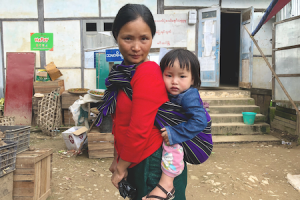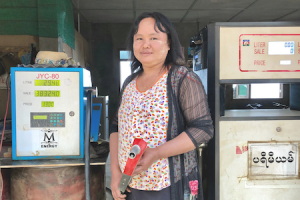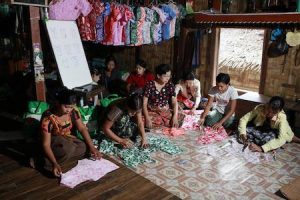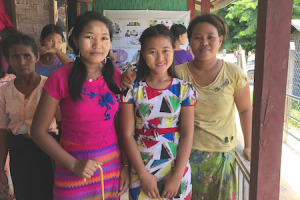The fight against all forms of gender discrimination and the commitment to stop every form of gender based violence (GBV) represents an important component of the transition Myanmar is currently undergoing. The country is a signatory to the main international treaties on gender (CEDAW and the Bejing Platform for Action) and has a domestic framework that sets goals for the advancement of gender equality and combatting GBV. In 2013 Myanmar adopted the National Strategic Plan for the advancement of Women – NSPAW - 2013-2022, setting up a mechanism for the implementation of important reforms. The law for Prevention of Violence Against Women (PoVAW) is expected to be adopted soon, after years of delay. Despite progress and the strong commitment from government stakeholders, there is still a long road ahead for the government and its partners to ensure that every woman in the country is free from discrimination and violence.
The 2014 Myanmar census indicates a total population of approximately 53,7 million people, with 70 percent residing in rural areas, and women constituting 52% of Myanmar’s population. Gender inequality and discrimination against women and girls are widespread. Literacy rates are lower for women in every state and region while the labor force participation rate for women in Myanmar is 50.5% compared to 85% for men. When in paid employment, women are concentrated in the unprotected informal sector and in vulnerable employment in gender-specific sectors and even in more secure occupations a significant gender pay gap exists.
Social research undertaken on gender norms and violence against women demonstrates the causal link between the prevalence of discriminatory cultural stereotypes and social norms, institutionalised gender inequality and GBV. According to the 2015-2016 Myanmar Demographics and Health Survey -MDHS, 15% of women age 15-49 reported that they had experienced physical violence since age 15; 9% had experienced physical violence in the 12 months before the survey. MDHS data established that women with no education and those from the poorest households were most likely to have experienced physical violence.
Considering the big challenges that Myanmar is facing in its path toward gender equality and GBV eradication, the Italian Agency for Development Cooperation (AICS) is strongly committed to supporting the efforts of the country. Our engagement is threefold:
- Promote Gender Equality and Women Empowerment;
- Combat all forms of GBV and ensure a gender based approach within the triple nexus of development, humanitarianism and peacebuilding.
- Ensure gender mainstreaming in all development and humanitarian activities;
AICS is directly involved in two important programmes on Gender equality and GBV.
The project “Gender Equality and Women’s Participation in Chin State (GEWE) aims at improving the overall policies and living conditions of vulnerable women and girls in Chin State. In particular, AICS provides technical support to the Women’s Division of Department of Social Welfare (DSW), which works under the Union Ministry of Social Welfare, Resettlement and Relief, via the thematic working group for the NSPAW action plan. In co-operation with the DSW, the Department of Rural Development and Italian and local CSOs, the project has planned awareness-raising activities to enhance women’s participation in their communities and small grants to support women entrepreneurship in Chin state.
The program Women and Girls First, co-founded by AICS and implemented by UNFPA, targets women and girls left behind in conflict contexts, ensuring access to sexual and reproductive health and rights services and comprehensive support to women and girl survivors of GBV. Following the humanitarian-development nexus’ use of a gender lens, the activities are implemented in sensitive areas such as Rakhine, Kachin and Northern Shan State with a special focus on beneficiaries in IDP camps. Thousands of hygiene kits have been delivered, mobile health services provided and Women and Girls First Centers established through this program.




